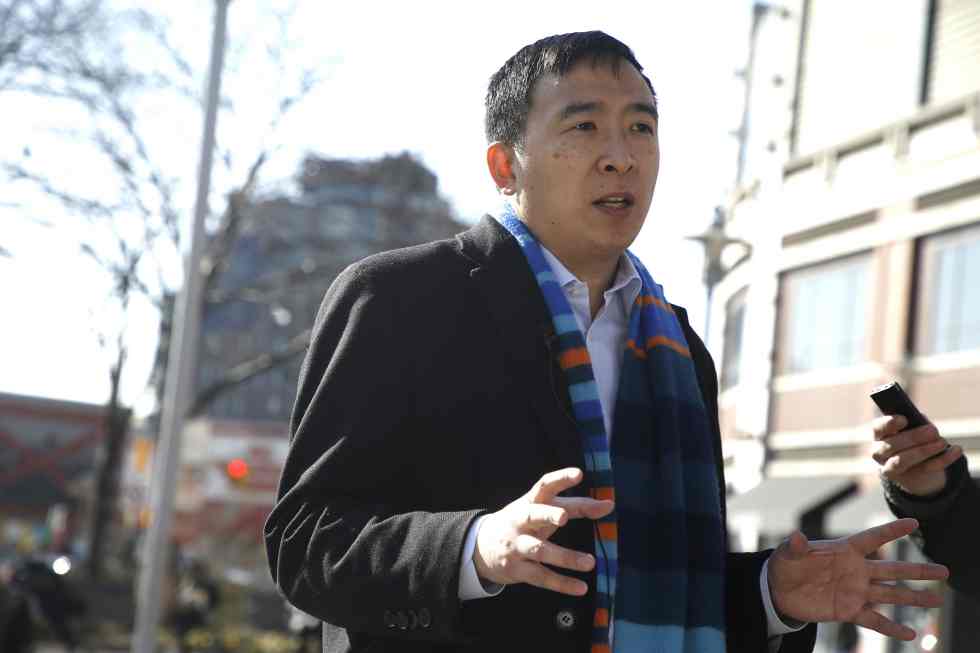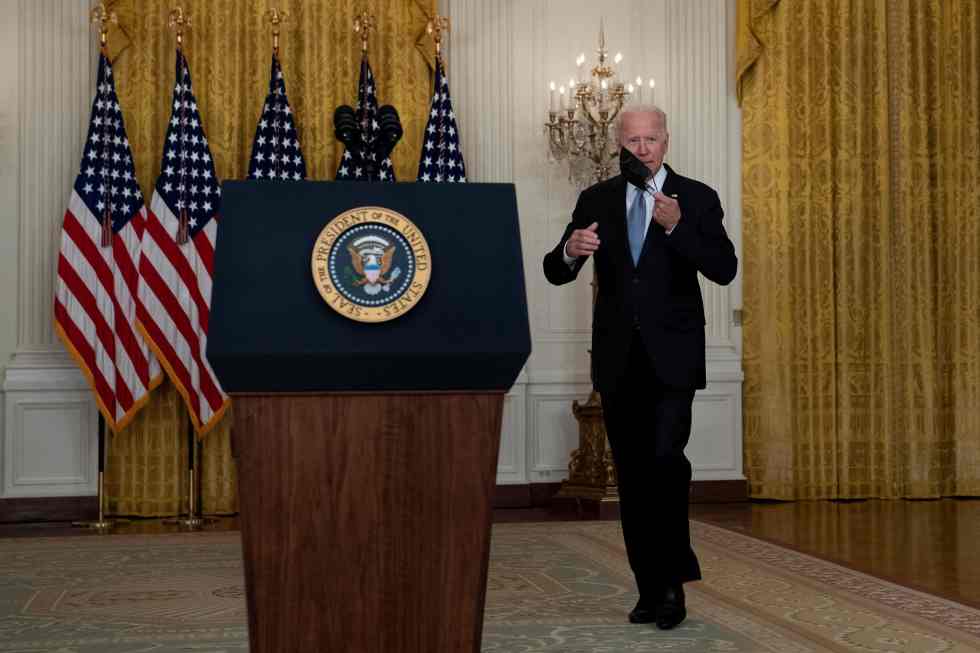For a few years, the concern of upcoming mass unemployment as a consequence of synthetic intelligence and automation has spurred conversations about the way forward for work and impressed advocacy for a common fundamental earnings (UBI). After subsiding for some time and changing into only a speaking level related to Andrew Yang’s presidential marketing campaign, curiosity in UBI has revived amid the COVID-19 pandemic.
To UBI proponents, the excessive ranges of unemployment and financial uncertainty related to the pandemic show the necessity for the federal government to play a bigger position in folks’s lives. However whereas UBI could sound engaging to many throughout difficult instances as a result of it guarantees some stage of monetary safety, you will need to think about ways in which it fails to assist—and will finally undermine—human flourishing. A common fundamental earnings would make it tougher for recipients to develop a way of that means in life and to build up types of human capital that promote self-sufficiency and financial progress.
Most UBI analyses fixate on fundamental financial questions, akin to how the coverage would possibly impression labor-force participation and the way it will be paid for—and for good cause. The few discussions that do account for the way UBI would possibly affect psychological variables are inclined to narrowly think about emotional dimensions of wellbeing that make UBI look like purely useful. It ought to come as no shock that receiving “free” cash could enhance optimistic feelings and not less than briefly cut back stress. However that is an excessively hedonic and slim view of wellbeing that neglects necessary psychological elements of human flourishing.
Human flourishing requires creating a way of that means in life, which needs to be taken very significantly in UBI discussions. When folks understand their lives to be significant, they’re much less prone to endure from mental-health issues and higher in a position to get well in the event that they expertise mental-health challenges. Which means additionally positively predicts bodily well being, longevity and financial success. It is because that means has motivational energy. It’s a self-regulatory psychological useful resource that drives folks to push ahead when life will get tough and to have a optimistic outlook on life.
Which means evokes company. When folks consider their lives are significant, they view themselves as having a big position to play on this planet, energizing the kinds of goal-directed motion that assist households, communities and the broader society thrive. Work could be an necessary means to assist folks develop a way of that means—although not in the best way that many assume.
When folks describe what offers their lives that means, most do not straight level to their jobs. They level to their households and different relationships. Work generates that means not as a result of everybody loves their jobs, however as a result of jobs enable folks to financially present for his or her households and be a contributing member of their group. When folks do describe their jobs as significant, it’s sometimes as a result of they see how their work helps others in a roundabout way.
Some UBI advocates argue that many roles don’t present that means as a result of they’re tedious or disagreeable. This displays a misunderstanding of the connection between that means and work. If workers do not view their jobs as inherently significant, a part of the issue is perhaps that the employer, and maybe broader society, failed to advertise a tradition that helps staff—no matter their particular jobs—really feel valued. Employers ought to preserve this in thoughts, for the reason that extra staff really feel like significant members of a company, the extra motivated and happier they’re at work.
In fact, not all work is paid labor, however people are higher in a position to safe meaning-providing alternatives if paid and unpaid work roles are negotiated on the household stage, fairly than if the state disrupts pure human interdependence by selling authorities dependence.
We’re highlighting that means in life as a result of it performs a elementary position in supporting different types of human capital. When folks really feel significant, they’re extra energized, pushed, agentic, optimistic, resilient, inventive, future-oriented and motivated to assist others.
A deal with the psychology of human flourishing may also help us suppose extra clearly about what concepts and insurance policies we must always advocate for. Packages like UBI cut back the deal with selling a vibrant and dynamic financial system that creates jobs for extra folks. Such packages might also work in opposition to the entrepreneurial spirit, which is dependent upon private company. Certainly, current analysis reveals that it’s when folks view that means in life as inside their management (existential company) that they’re most motivated to pursue entrepreneurial objectives.
On the finish of the day we must always not lose deal with the straightforward undeniable fact that the most typical path to upward financial mobility is thru a job, and thru the talents, social connections and existential capital a job helps construct. UBI does nothing to orient people towards self-sufficiency and long-term flourishing.
Sure, some folks would use the additional cash to pursue the kinds of objectives that result in upward mobility. However these usually tend to be the kinds of people who would have succeeded on their very own with out UBI than the kinds of people who may use some steering about how one can enhance their lives and the lives of their households.
Most of the financially profitable adults who assist UBI themselves already benefited from household, cultural and academic constructions that assist meaning-oriented goal-striving by self-discipline, work ethic, self-confidence and artistic downside fixing. UBI doesn’t assist make these constructions extra accessible to, and extra valued by, poor People. As a substitute, by being a everlasting, no-strings-attached type of authorities assist, UBI could ship the implicit message that there’s little or no hope for some folks to grow to be financially impartial, to succeed in some extent through which they’re supporting their very own households and making significant contributions to society. In different phrases, UBI may inadvertently lower the psychological capital wanted to extend monetary independence and upward mobility.
UBI looks like a easy technique to make folks’s lives simpler and to defend in opposition to fears of a future with out work. Nonetheless, a life with out work is just not a recipe for human flourishing. People are at their greatest when they’re creating, constructing, experimenting, innovating and specializing in methods they will make a distinction on this planet. We needs to be very cautious about taking actions that might undermine such ambitions.
Clay Routledge is a professor of administration at North Dakota State College, a school scholar on the Challey Institute for International Innovation and Progress, and a senior analysis fellow on the Archbridge Institute, the place Gonzalo Schwarz is the President and CEO.
The views expressed on this article are the writers’ personal.











Leave a Reply